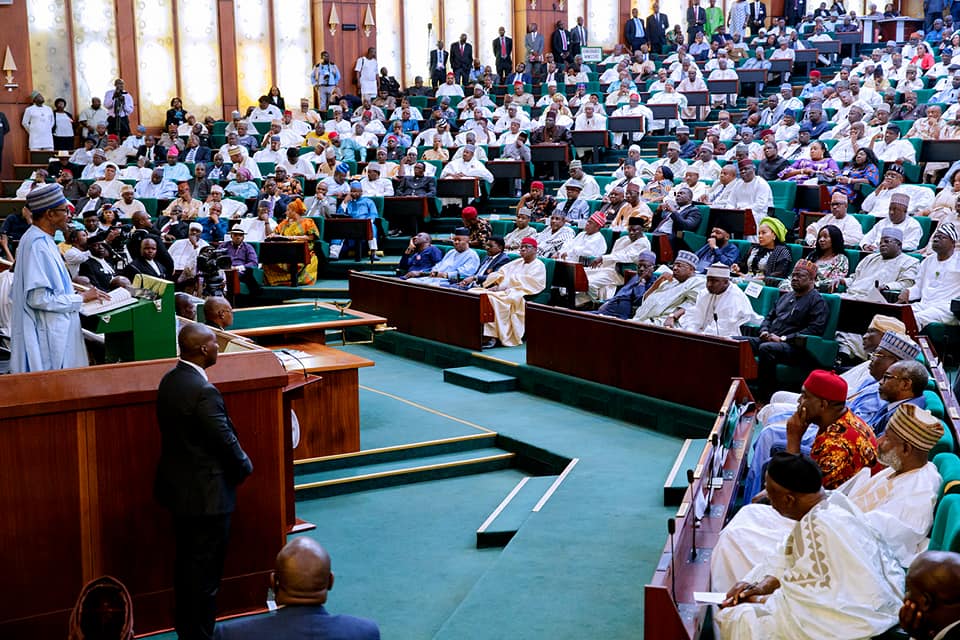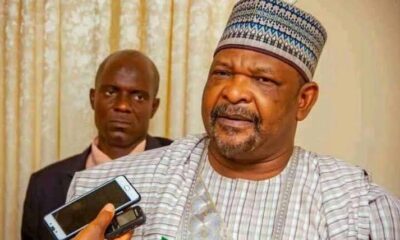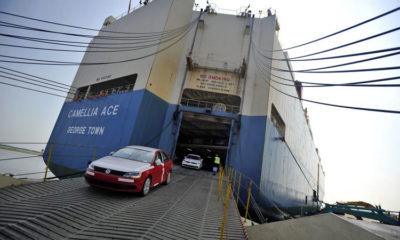- Senate Panel Rejects Ministry’s Budget for Voting N42bn to ‘Private’ Firm
The Senate Committee on Trade and Investment on Monday rejected the 2019 budgetary proposal of the Ministry of Industry, Trade and Investment for voting N42bn to a ‘private’ company.
The panel claimed that the firm, Special Economic Zone Company, was a private company, against the claims by the ministry that it was a government firm.
The development led to the outright rejection of the ministry’s proposal of N15.6bn as its 2019 budget presented to the Senate panel.
Trouble started when the panel confronted the minister, Okechukwu Enelamah, during the budget defence session to explain why his ministry proposed N15bn as its 2019 budget but sought the National Assembly approval of N42bn for a private firm.
The minister had earlier presented a booklet containing the 2019 budget proposals for the agencies under his ministry to the Senator Sabo Mohammed panel.
However, after his presentation, the panel chairman drew the attention of Enelamah to item 2 on page 7 of the booklet which has N42.091bn budgetary allocation for the Nigeria Special Economic Zone Company.
The panel insisted that the firm was not known to be one of the 17 agencies under the ministry.
The minister said the company was established through a presidential initiative and given approval at a cabinet meeting in May 2018.
He said, “One of the areas that this government has focused on is infrastructure. The second area is industrialisation and the two have something in common.
“If the government tries to do it alone, it would be extremely taxing. So, the President directed that we should bring other partners that can contribute to whatever money we have to build world-class infrastructure which led to the establishment of the company in partnership with other investors.”
Meanwhile, when asked to explain the owners of the company, the minister said it was owned by the Federal Government and other shareholders. But the panel disagreed with him.
The chairman of the committee then told him that a document obtained by them from the Corporate Affairs Commission signed by Terver Ayua-Jor, for the Registrar General, did not agree with the minister’s submission.
According to him, the letter from the CAC contains information on how the company was registered.
He also said the letter showed that the firm’s name was Nigeria Sez Investment Company Limited and not Nigeria Special Economic Zone Company in the documents presented by the minister.
He also said the firm, according to the CAC document, was established on June 12, 2018, a week to the signing of the 2019 budget
Mohammed said, “Ownership of the company, as clearly stated in the document obtained from CAC on the 26th of last month, designated as Directors Dr Bakari Wadinga, Mr Olufemi Edun and Ms Oluwadara Owoyemi.
“The document clearly states that the company is a private company and that liability of the members is limited by share which, as also shown, gives the Federal Government 25 per cent and 75 per cent to the private individuals.”
Attempts by the minister to convince the panel failed as the members unanimously directed him to forward detailed written explanation on how the company got into appropriation list, its management staff, its staff strength and statement of account.

 Forex4 weeks ago
Forex4 weeks ago
 Naira3 weeks ago
Naira3 weeks ago
 Billionaire Watch3 weeks ago
Billionaire Watch3 weeks ago



 Naira3 weeks ago
Naira3 weeks ago






 Naira3 weeks ago
Naira3 weeks ago


 Naira2 weeks ago
Naira2 weeks ago






 Naira2 weeks ago
Naira2 weeks ago
 Commodities4 weeks ago
Commodities4 weeks ago





















